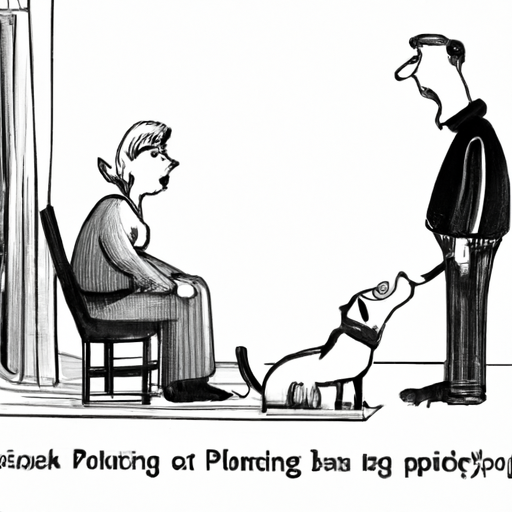Being a caregiver to your pet, you may have noticed an unusual occurrence – your dog’s mouth shaking. This can be quite unsettling, causing you to wonder why this is happening. This guide is meant for you, to help you understand why your dog might be exhibiting such behavior.
1. Possible Causes of a Dog’s Shaking Mouth
You’ve noticed your dog’s mouth shaking, and you’re worried. Here’s a list of possible reasons why this might be happening:
- Dental Problems: Just like humans, dogs can also suffer from dental issues that could lead to mouth shaking. This could include gum disease, tooth decay, or a broken tooth.
- Cold: If your dog has been in a cold environment, it could be shaking due to the cold.
- Nervousness or Fear: Some dogs shake their mouths when they are nervous or scared.
- Pain or Discomfort: If your dog is in pain, it may shake its mouth as a response to the discomfort.
- Canine Distemper: This is a serious viral illness that can cause a dog’s mouth to shake.
Remember, it’s always best to consult with a veterinarian if your dog is exhibiting unusual behavior.
2. Identifying Dental Problems in Dogs
How can you tell if your dog’s mouth shaking is due to dental problems? Here are some signs to look out for:
- Bad breath
- Loss of appetite
- Difficulty chewing
- Red or swollen gums
If your dog is exhibiting any of these symptoms, it’s time to visit the vet.
3. What to Do If Your Dog’s Mouth is Shaking Due to Cold
If your dog’s mouth is shaking due to the cold, there are several measures you can take:
- Provide a warm blanket for your dog to snuggle under.
- Keep your dog indoors during cold weather.
- Dress your dog in a doggy sweater or coat.
4. Helping a Nervous or Fearful Dog
If your dog is shaking its mouth due to nervousness or fear, it’s important to identify the cause and address it. The table below provides some common causes of fear and nervousness in dogs and how to address them:
| Cause | Solution |
|---|---|
| Loud noises | Provide a safe space for your dog. |
| New people or pets | Gradually introduce your dog to new people and pets. |
| Changes in environment | Keep changes to a minimum and introduce new environments gradually. |
5. Canine Distemper: A Serious Illness
Canine distemper is a serious illness that can cause a range of symptoms, including mouth shaking. It’s important to get your dog vaccinated against this disease.
FAQ
Q: How can I tell if my dog’s mouth shaking is serious?
A: If your dog’s mouth shaking is accompanied by other symptoms such as loss of appetite, lethargy, or changes in behavior, it’s best to consult with a vet.
Q: What other symptoms might accompany mouth shaking?
A: Depending on the cause, your dog might also exhibit symptoms such as drooling, difficulty eating, or changes in behavior.
Q: How can I prevent dental problems in my dog?
A: Regular brushing, providing dental chews, and regular vet check-ups can help prevent dental problems.
Remember, your dog relies on you for its well-being. Stay observant and proactive in its care.



